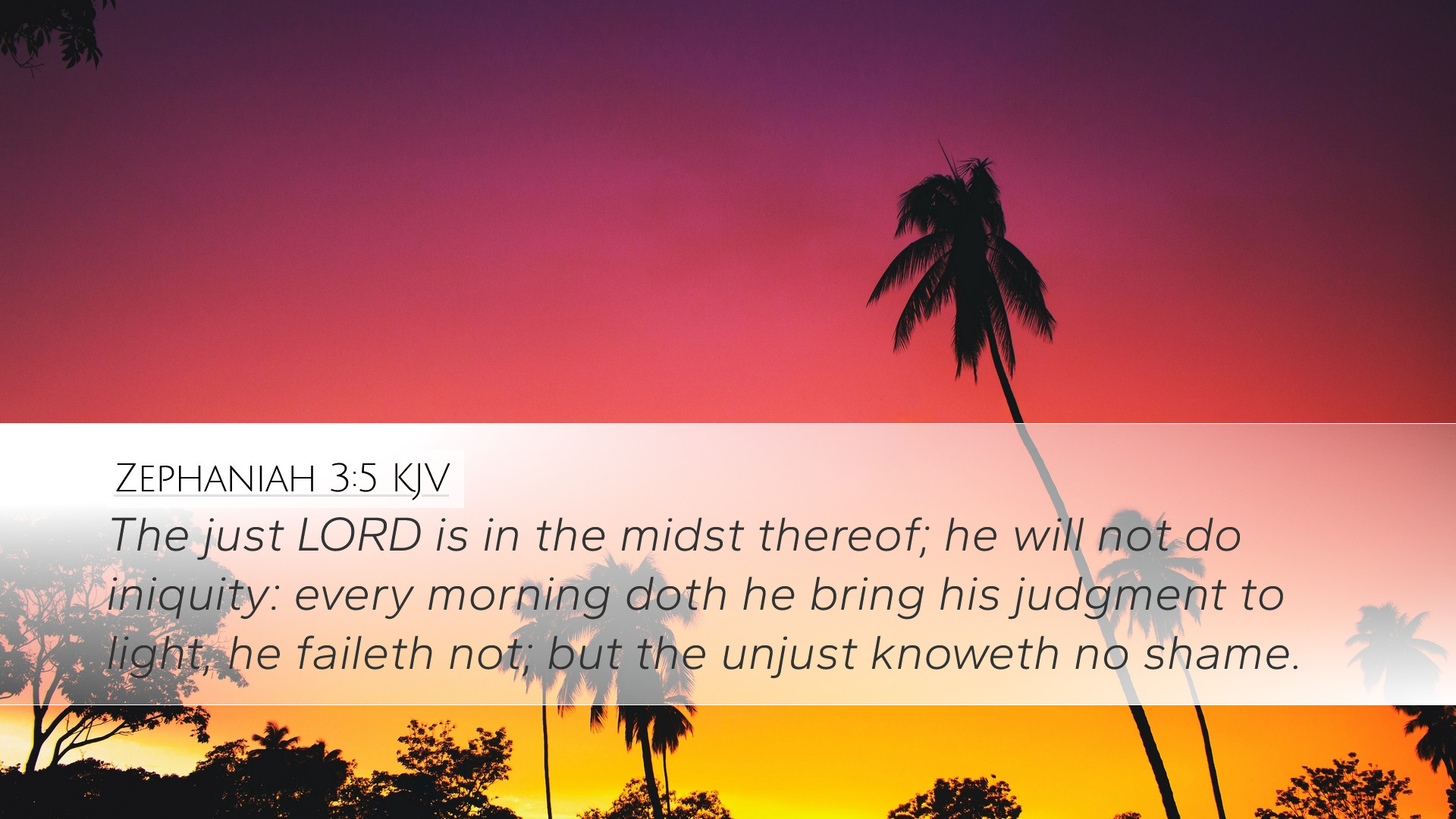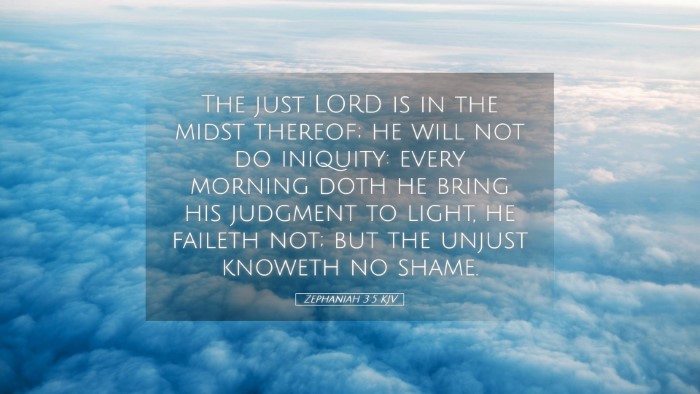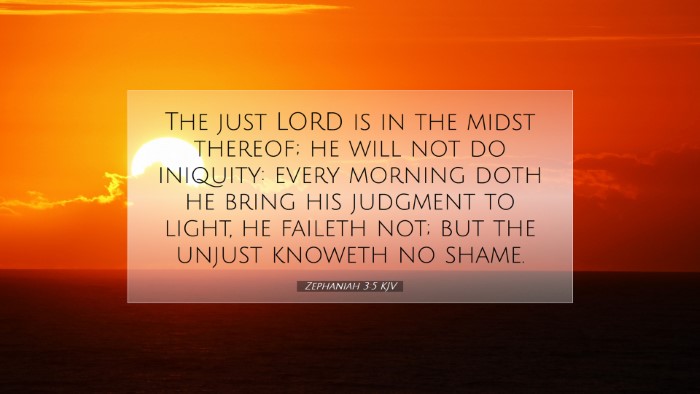Old Testament
Genesis Exodus Leviticus Numbers Deuteronomy Joshua Judges Ruth 1 Samuel 2 Samuel 1 Kings 2 Kings 1 Chronicles 2 Chronicles Ezra Nehemiah Esther Job Psalms Proverbs Ecclesiastes Song of Solomon Isaiah Jeremiah Lamentations Ezekiel Daniel Hosea Joel Amos Obadiah Jonah Micah Nahum Habakkuk Zephaniah Haggai Zechariah MalachiZephaniah 3:5
Zephaniah 3:5 KJV
The just LORD is in the midst thereof; he will not do iniquity: every morning doth he bring his judgment to light, he faileth not; but the unjust knoweth no shame.
Zephaniah 3:5 Bible Commentary
Commentary on Zephaniah 3:5
Verse: "The just Lord is in the midst thereof; he will not do iniquity: every morning doth he bring his judgment to light: he faileth not; but the unjust knoweth no shame." (Zephaniah 3:5)
Introduction
This verse presents a profound statement about the nature of God’s justice and the moral condition of humanity. Zephaniah, a minor prophet, proclaims God’s sovereignty and justice amidst impending judgment. The verse can be dissected into several key themes: God's righteousness, the manifestation of judgment, and the indifference of the unjust.
Divine Righteousness
The phrase "The just Lord" emphasizes God's absolute righteousness. As highlighted in Matthew Henry's Commentary, this descriptor is essential; it reassures believers that God's dealings with humanity are fair and impartial. God, being just, cannot condone sin and will always act according to His holy nature.
Adam Clarke elaborates that God's presence, "is in the midst thereof," signifies His omnipresence and engagement within creation. Thus, God is not distant but intimately involved in the moral workings of the world.
The Nature of God's Judgments
"Every morning doth he bring his judgment to light": This phrase signifies the continual revelation and manifestation of divine justice. Albert Barnes interprets this as God's daily grace, offering opportunities for repentance, where He exposes sin and reveals the path of righteousness.
- Moral Clarity: Just as the sun rises each morning to illuminate the earth, God's judgments illuminate the darkness of human sin.
- Imminent Justice: The use of "every morning" suggests the immediacy and regularity of God's justice being enacted. It is not a distant event but a present reality.
God's Faithfulness
The phrase "he faileth not" serves as an assurance of God's unchanging nature. Henry points out that unlike humans, who often fail in their pledges, God is consistent in His character and fulfills His promises. His judgments are reliable and steadfast.
The Condition of the Unjust
In stark contrast, the latter part of the verse states, "but the unjust knoweth no shame." This highlights the moral blindness and spiritual apathy of those who defy God’s authority. Clarke suggests that the unjust often live in a continual state of rebellion against God's laws, leading to a profound lack of accountability and shame.
- Spiritual Insensitivity: This condition of the unjust exemplifies a heart hardened against God's truths, a theme that resonates throughout biblical prophecy.
- Consequences of Unrighteousness: The absence of shame indicates a community or individual cut off from understanding their sinful state, which leads to further moral degradation.
Application for Believers
This verse serves as a reminder for believers to trust in the justice of God amidst trials and injustices in the world. Barnes articulates that knowing God is just can bring comfort in suffering and persecution.
Additionally, it prompts introspection regarding one’s own state before God. The absence of shame among the unjust calls believers to avoid complacency and continually seek repentance and renewal in their relationship with God.
Conclusion
Zephaniah 3:5 succinctly encapsulates vital theological themes regarding God's character and human sinfulness. The juxtaposition of divine justice and human injustice within this verse challenges both our understanding of God and ourselves. Faithful believers are encouraged to embrace the justice of God while remaining vigilant against the encroachment of spiritual apathy in their lives.
As the faithful await the ultimate realization of God's righteous kingdom, they can hold onto the assurance that the "just Lord" will ultimately prevail and that His judgments will be a means of restoration for those who turn to Him in humility and faith.


